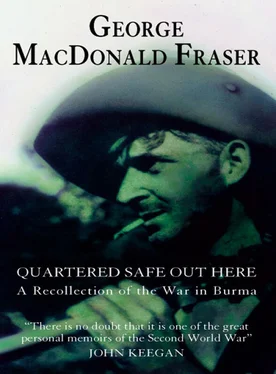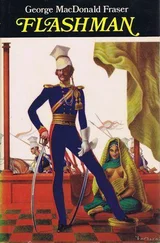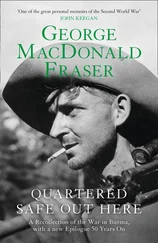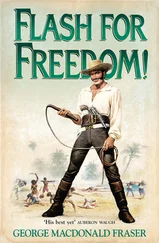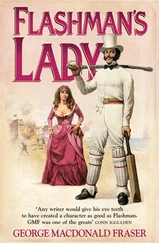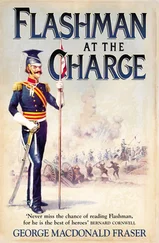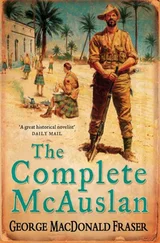British soldiers don’t love their commanders, much less worship them; Fourteenth Army trusted Slim and thought of him as one of themselves, and perhaps his real secret was that the feeling was mutual. I have a picture of him at a Burma Reunion, standing awkwardly but looking so content, with his soldiers jostling and grinning round him – and that day by the lake, nodding and wishing us luck and turning away under the trees.
I know I have not done him justice. I can only say what Kenneth Roberts wrote of Robert Rogers, that the thought of him was like home and safety.
*The defence of Meiktila necessitated a proper barbed-wire apron, but later, farther south, I don’t recall wire often being used, probably because we were seldom in one position for long. A battalion or company “box”, held for a night or two, might have a single trip-wire, but usually the perimeter consisted of our slit-trenches.
Winston Churchill has said that there is nothing more exhilarating than being shot at and not being hit. Each to his taste; I wouldn’t call it exhilarating, quite, but it does bring a reaction beyond mere relief; satisfaction, I think. The first time it happened to me I didn’t even realise it, at first. We were patrolling, four of us, less than a mile out from the perimeter, scouting for any sign of impending counter-attack on Meiktila, and had just turned back; all round there was dusty plain and dry paddy stretching away into the haze, with here and there a grove of trees in the distance and patches of scrub. Corporal Little had paused to scan with his binoculars, and I was crossing the crest of a little bund * when there was a sharp pfft! in the air above me, followed a little later by a distant crack. If the others had reacted quickly, I’d have done the same, but Little simply squatted down, and the other two looked round before following suit; there was no sudden hitting of the deck or cries of alarm. Little just said: “Gidoon, Jock,” and continued his scan.
“Somewheres ower theer,” called Forster.
“Aye,” said Little, and lowered his glasses. “Bloody miles off. Lal * bastard. Awoy, then, let’s git on.”
That was all. No second shot, and not a thing to be seen, but their lack of interest, let alone concern, nonplussed me until I reflected that the shot had come from a long way off, that the chance of its hitting had been negligible, and there was nothing to be done about it anyway: searching in the general direction of the sniper would have been futile and risky. Had it been at closer range, that would have been different; as it was, Little’s job was to reconnoitre and report.
So I concluded, and I didn’t bother Little with questions. Later, when I analysed my reactions to being shot at for the first time, I realised that they were – nothing. And that, I’m sure, was because the others hadn’t given a tuppenny dam about it. If they had leaped around screaming, I’d have been fit to be tied, no doubt. That incident, trivial though it was, taught me a lesson, which I pass on to any young soldier who may be interested. If you want to know how scared you’ve a right to be, look at the men around you. (And if you happen to be a young subaltern, remember that they’re looking at you .)
Among the soldier’s fears, that of being shot at is probably one of the least, unless it’s at close range, and then there is seldom time to be afraid. He would rather not be sniped at, of course, but experience breeds, if not contempt, at least a certain fatalism: they haven’t got him yet, and with luck they won’t. Everyone has his own different priority of panic, to be sure, and what scares one man witless may not worry another unduly, and vice versa; my own special antipathy was to sitting about in the dark in the presence, real or imminent, of the enemy, with nothing to do but wait because those were the orders. Some, on the other hand, found having to move around in darkness even more trying, and they have a point. I suppose it depends how much faith you have in your own agility – Grandarse loathed night patrolling, for example, and was given as little of it as possible, not to spare his feelings but because the last thing you need is sixteen unwieldy stone crashing about in the undergrowth and breathing loud enough to be heard in Tokyo.
I’m sure that out of my total active service I spent only an infinitesimal time operating in the Burmese night, but in retrospect it seems longer.
The defensive scheme for 17th Div entailed incessant patrolling, both by night and day. You might think that in our situation, cut off by superior numbers, the obvious thing would have been to sit tight and let Jap come at us; having seen my share of Westerns I envisaged waves of them charging the wire while we blazed away at them. Wiser heads than mine knew that it was vital to break up his attacks before they could even be launched, hence the expeditions, sometimes in battalion strength, to fall on his concentration points, the patrols, of varying size, to spy out his movements, and the observation posts, outside the perimeter, to give warning of night attacks. And on the wire itself, the night stag, two guards per section dusk to dawn, unless an alarm necessitated a 50 or 100 per cent stand-to (half or all of the section awake and in their rifle pits).
A stag was a two-hour watch of two men, armed with rifles and bandoliers, normally standing in one pit, but at Meiktila there was an old bunker half-under the wire, and it was usual to lie on the inner slope of this, looking out across the empty ground to the scrub and wood. I don’t remember it ever being pitch black; there always seemed to be half-light, and sometimes the moon turning the scene to silver and casting shadows across the landscape. It was eerie, but placid enough; you got used to the night-sounds and to the odd tricks that your eyesight can play you, causing bushes to stir when they’re perfectly still, or detecting movement from the corner of your eye which isn’t there when you look at it directly. You learned not to concentrate your thoughts, too, for that can take you halfway to sleep – not that this was a problem at Meiktila, where we got adequate rest. Later on it was to be different; when you’re weary to the point of utter exhaustion, keeping awake on stag can be a real ordeal, for you mustn’t move too much or the enemy out yonder will have you marked; you find yourself swaying and realise you were half away, and snap out of it, and a few seconds later your legs buckle and you collapse in your pit – how my knee-caps held out in Southern Burma I’ll never know. You must get up at once, pinch yourself hard, and stare for all you’re worth, or you’ll start to sway again. And so on.
The chief irritant on stag was the “up-you bird” (I give the bowdlerised form of the name) familiar to all who have soldiered in the Far East. In fact, it is a large lizard, said to have a vicious bite, which inhabits drains in the civilised areas; where it lived in the Dry Belt, God knows. It starts up at night and drives strong men mad, for its call is a harsh whirring sound culminating in a melodious “Up you! Up you! Up you!” Half an hour of this, and you become convinced that there is a human being out there, chanting obscenely at you; it is a rare night when some blanket-wrapped form doesn’t come bolt upright with a raging retort of “And up you, too!”
Apart from listening for the enemy, you had to keep an eye and ear open for night patrols returning; it’s a good patrol that can arrive back exactly at its starting-point, and occasionally dark forms would emerge unexpectedly from the gloom, hissing the password. There was a gap in the wire opposite the platoon on our left, manned by a picquet with a Bren, and that was where they would re-enter.
Читать дальше
